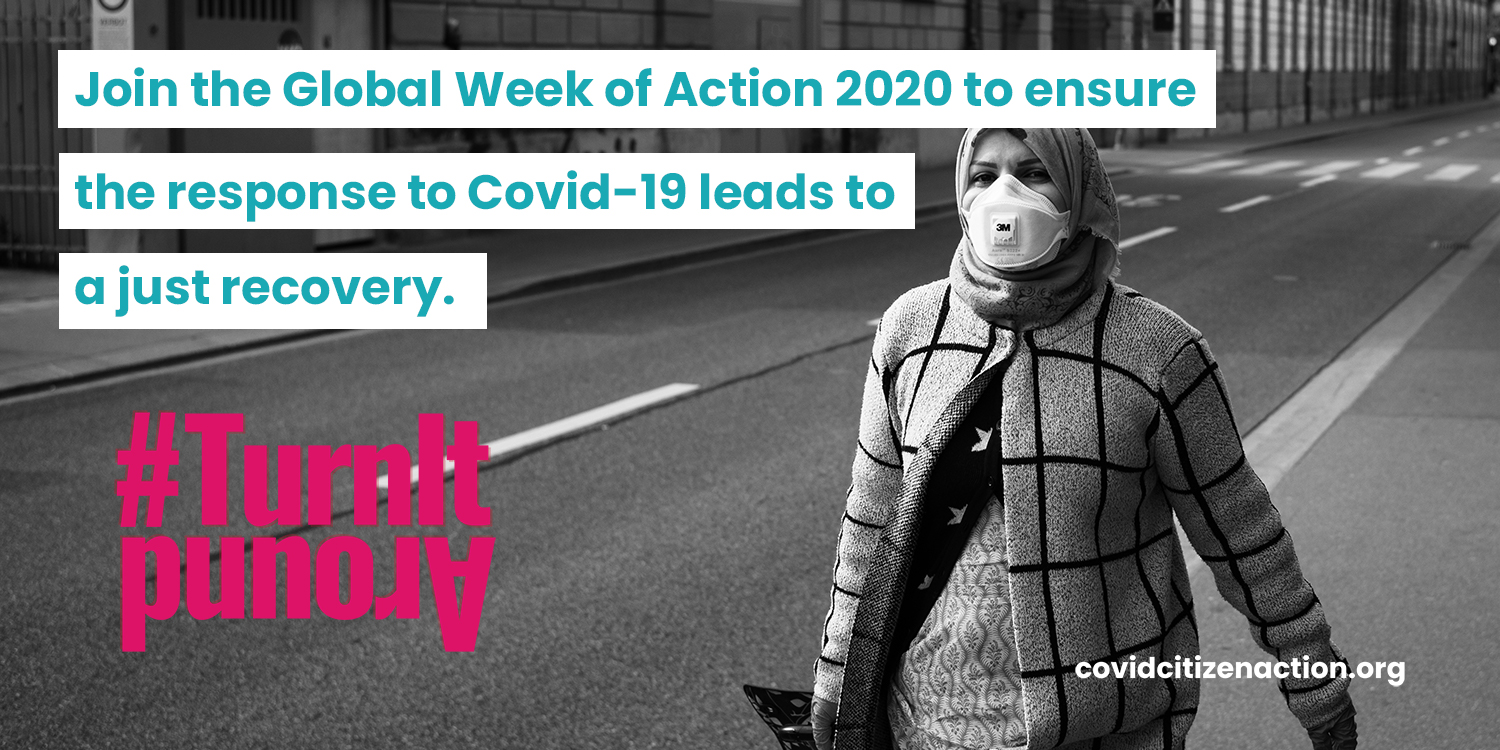
Civil society initiatives across the world
Joint Civil Society Statement
The world faces an unprecedented moment of crisis. The Covid-19 pandemic is pushing humanity’s resilience to the limit and has vast impacts on the wider social, economic and environmental fabric of our world.
The pandemic especially affects older people, people with disabilities, and those with underlying health conditions, and highlights the importance of a whole-of-society approach to deliver well-resourced health systems that respond to all ages. This is an urgent healthcare emergency that shines a glaring light on the underlying fragility and inequalities of our societies and the critical need for stronger health systems, universal provision of the right to health and social protection for all, as well as long-term sustainable development, as set out in the Sustainable Development Goals.
We are resolved that civil society organisations and volunteers have a critical role to play in supporting community action and ensuring that those who are most often marginalised are not left behind through this challenging time. Already huge numbers of volunteers are stepping up in many parts of the world to ensure vital food, medical supplies and basic provisions can reach those who are affected.
We will identify community responses in various countries and share the stories of those community champions who are at the frontline of this emergency response for cross learning and inspiration but we expect world leaders to ensure the following key measures are addressed to build a fairer future:
Inequalities
The global response to the pandemic must leave no one behind. We call on the UN and G20 governments to lead a multilateral process to ensure sufficient funds are available through the WHO and national governments to ensure provision of free universal healthcare, social care and support to those who are directly affected in all parts of the world. This must be done equally regardless of individuals’ legal status, age, gender, disability or identity, without fear of deportation or detention, criminalisation, exploitation or abuse and the process must be transparent, inclusive, equitable and accountable.
We call for immediate debt cancellation, financial burden relief mechanisms and large scale aid investments to fund ongoing universal public health and social care service delivery everywhere across the globe to ensure that healthcare is universal and free for all. We call for daring financial policies, including central banks to provide resources and liquidity to governments in a coordinated way, to finance their efforts to respond to the crisis in its economic and social dimension.
We also call on the UN and governments to urgently identify measures to support those in a fragile economic position by establishing a global recovery fund and delivering full implementation of universal social protection benefits and safety nets in all countries, including establishing and supporting social protection floors.
Civic rights
We are concerned that emergency powers are being used indiscriminately to restrict people’s fundamental freedoms, reduce the opportunity for public dialogue and lifting the duty of care for citizens who are vulnerable due to age and disability from health and social care providers. Some governments are deliberately targeting whistleblowers and those who actively share information on inadequacies in the response to the spread of the COVID-19 virus or other human rights defenders. Use of enhanced surveillance powers to restrict civic freedoms is a key challenge that needs to be addressed.
Everyone has the right to health and to be free from discrimination across their life course. In times of crisis, difficult choices may have to be made about who receives medical treatment. We remind governments that decisions on which treatment people get should be based on medical needs, scientific evidence and ethical principles, such as fairness and proportionality.
We remind all governments that any restrictions to movement and assembly should be in accordance with human rights commitments and international standards. Measures should be temporary, subject to review, necessary and proportionate to the evaluated risk, and targeted to ensure public safety while balancing fundamental freedoms. We further support the UN call for a global cease-fire during the pandemic; call on governments to ease the sanctions for humanitarian assistance for vulnerable people in countries under sanction; and redirect military spending to social protection.
We also call on the UN to safeguard the freedom of expression of those who seek to highlight the specific challenges faced by people of any background suffering from Covid-19.
Women’s Rights and Gender justice
Women play an outsized role in the COVID-19 response. They constitute 70% of the world’s health care workforce and recognising that they are workers who are on the frontlines of responding to this health emergency, they must be adequately, appropriately and properly protected and supported to cope with the multiple impacts. We therefore call on all governments to make sure health and social care workers are properly trained, equipped, offered safe and decent working conditions; and properly resourced, including by closing the 28% gender pay gap in the health sector by instituting immediate equal pay for equal work.
Governments must also recognize and address how traditional gender roles affect how people of all genders and ages experience the Covid-19 crisis, reiterating that as in past epidemics, women’s traditional role as caregivers for sick family members is putting more women and girls at greater risk of infection.
Past health emergencies have caused a disruption in routine health services such as access to sexual and reproductive health products and services, access to vaccines programmes, and the provision of quality material care—this disruption of services has grave consequences to millions of lives. We call on governments to safeguard the provision of essential health services through strong primary healthcare systems and universal healthcare systems that are inclusive of sexual and reproductive health services.
There are already significant increases in rates of gender based violence (disproportionately affecting women and girls), including domestic violence in lockdowns, street and workplace racial and sexual harassment, negative coping strategies, and state violence, while support is often diverted to emergency response, which puts women’s and children’s lives at risk. We call on governments to urgently increase prioritisation of and funding to prevent and respond to gender based violence (GBV). A twin track approach must be taken of: 1) funding specialist GBV organisations to deliver prevention initiatives, shelters, hotlines, psycho-social and legal support; 2) taking a multi-sectoral approach by integrating ending GBV into the responses to COVID-19.
We recommend that all Covid-19 related funding, including UN COVID Funds, applies a gender lens and includes a gender marker so we can track and monitor the activities and the implications they will have on the advancement of gender equality. We stress that governments must uphold financial and policy commitments to girls’ and women’s health and rights and not let this crisis increase inequalities or reverse hard-won gains in gender equality by applying a gender marker to all funding.
Climate & Environmental justice
Increasing contact between humans and wild animals through habitat loss, climate-change related displacement and shifts in movement of animals and humans; and practices such as wildlife markets and illegal trade encourages the creation and spread of pandemics.
The Covid-19 virus emerged in a situation where nature was under pressure and animals were not treated in a compassionate way. It has been argued that the virus is ‘nature’s wake up call to humanity’. Not only are animals treated in poor conditions but also increased levels of deforestation are putting humanity in ever closer contact with the natural world; and biodiversity is under daily attack. We will work with civil society partners to share approaches that nurture nature and protect biodiversity as part of the recovery from the Covid-19 pandemic.
We call on the UN to urgently review and move towards a ban on the live wild animal trade and we further call on all governments to halt deforestation.
Any economic stimulus must ensure that the economy of the future is sustainable and just, that moves subsidies away from fossil fuel industries and creates millions of sustainable jobs. Governments are introducing major fiscal stimulus and economic rescue packages with some countries already designing Phase 2 of their response. As the UNSG and others are saying, we need to ‘recover better’ at a time when there is a major risk that we go back to business as usual and lock in high carbon emissions and infrastructure. The SDGs provide a roadmap for the future we want to see, and this pandemic has taught us that policy coherence and a focus on the pledge to Leave No One Behind is absolutely critical.
Governments are rightly focused on the immediate emergency but as they plan for future stimulus and rescue packages, they must ensure that they include commitments and measures that will enable every country to meet their obligations under the Paris Agreement; that ensure that global greenhouse gas emissions never rebound bu continue to fall year on year hereafter; and put us firmly on the path to net zero, with global heating limited to 1.5C above pre-industrial levels.
Building back better
We must be ready and committed to build back better, guided by the principles and the commitments in the Sustainable Development Goals of universality, collaboration, human rights, interconnectedness and to leave no-one behind. Life course policies based on the international framework of human rights and intergenerational cohesion are needed to deliver income security, the best possible health, decent housing, safety and enjoyment of rights for people of all ages.
We need a major economic stimulus that underpins a new social contract between people, governments and the market, that radically reduces inequality, gender inequalities and lays the foundations for a just, equal and sustainable economy that works for all throughout their life course.
In summary, we call for the following 12 points:
The UN to:
- Connect immediate response and recovery funding directly with local groups which includes a ‘gender marker’ for women, marginalized people, community organisations and social enterprises to ensure we leave no one behind
- Safeguard freedom of expression and support innovative approaches to digital freedom of assembly to ensure all voices are heard
- Promote the global ceasefire and support governments to re-direct military spending to social protection
- Call for a ban on the live wild animal trade and a halt to deforestation
In the short term ‘response’ phase, Member state governments and donor agencies to:
- Safeguard healthcare workers and social care workers on the frontline by ensuring they have access to safe and decent working conditions and are resourced properly
- Involve civil society organisations in policy and operational responses to COVID-19
- Uphold financial and policy commitments to a human rights based approach, in particular the rights of older people, persons with disabilities and women, girls and gender diverse people
- Implement clear social and environmental conditions on any emergency financial stimulus to companies, such as treating workers fairly and cutting carbon emissions
In the medium term ‘recovery’ phase, Member state governments and donor agencies to:
- Drive a seismic shift towards universal healthcare, welfare payments and social protection that include essential services such as vaccine programs, sexual and reproductive health products and services for all
- Cancel national debts to ensure sufficient finance is available to governments to ensure a just recovery
- Adopt fairer taxation policies on those who hold the most resources in our society, alongside measures to tackle illicit financial flows to pay for these protections
- Put in place incentives for a feminist, green industrial revolution to enable rapid scaling up of sustainable jobs
Promote this statement with the hashtags #CovidCitizenAction and #StrongerTogether on social media.
Endorse this statement
Signatories:
- #StrongerTogether
- 300 women voices for development
- 3BLMedia/TriplePundit
- Abibiman Foundation
- Abibinsroma Foundation(ANF)
- Abundance of Hope Initiative
- Academia nacional de gestión de riesgos inclusiva y proteccion civil
- Academy of Grassroots Studies and Research of India (AGRASRI)
- ACAMAGE
- Accelerating Climate Action
- Accord-Bridge Foundation
- ACOD MALI
- Act Alliance
- Action For Development
- Action Against Hunger
- ACTION FOR CHANGE – Tanzania
- Action for Global Health
- Action for Sustainable Development
- ACTION HEALTH INCORPORATED
- Action Secours Ambulance
- ActionAid
- ACTIONS DES FEMMES POUR LES INITIATIVES DE DEVELOPPEMENT (AFID -RDC)
- Actions pour le Développement(A4D)
- Activista Movement Kenya
- ADAB (Association of Development Agencies in Bangladesh)
- Adara Development Initiatives
- ADD International
- Aden Loone
- ADIR-Burundi
- Adivasi Navjeewan Gathan Navjyoti Agua (ANGNA)
- Adriana Reynoso
- Advocacy Initiative for Development (AID)
- Advocacy, Research, Training and Services (ARTS) Foundation
- Afirca Future Foundation
- Africa Green Energy and Climate Centre
- Africa Intercultural Development Support Trust
- Africa Network for Environment and Economic Justice(ANEEJ)
- Africa Rise Foundation
- African Center for Solidarity and mutual Aid between the Communities (CASEC|ACSAC)
- African Monitor
- African Monitor – Uganda
- African NGO Council
- African Young Positives Network
- African Youth for Development commission
- African Youth Movement
- AfroLeadership
- AGP
- AidWatch Canada
- AIESEC Alumni International
- AIESEC Mexico A.C.
- AJEMALEBU SELF HELP (AJESH)
- Ajoke Ayisat Afolabi Foundation East
- Akhil Wazir
- Alex Martins Development
- Alexis Society
- Alianza por la Solidaridad
- Alison Page
- All-Africa Students Union
- ALLIANCE CONTRE LA PAUVRETE AU MALI “GCAP”
- Alliance for Empowering Rural Communities
- Alliance for Inclusion
- Alphabeta Comunicaciones
- Amis des Etrangers au Togo: ADET
- Amref Salud Africa
- ANC, Asociación Nacional de Centros Perú
- Andrew Crotty
- Andrew Morgan
- Aneta Hejrovskí¡
- Animis Philanthropic Ventures Inc.
- ANIMO Jalisco
- Ann Hancock
- Anne Darby
- Anne Whytock
- ANTAR Society for Development
- Arab NGO Network For Development, ANND
- ARBO A.C.
- Argentine Network for International Cooperation – RACI
- Arise Help For Child Foundation Bangladesh
- Arman Masters
- Asamblea de Cooperación por la Paz (ACPP)
- ASHIA International
- ASHISH SHRIVASTAVA
- Asia and Pacific Alliance of YMCAs
- Asia Civil Society Partnership for Sustainable Development (APSD)
- Asia Dalit Rights Forum
- Asia Development Alliance
- Asia Partnership for Sustainable Development
- Asian Center for the Progress of Peoples
- Asian Dalit Rights Forum (ADRF)/ Dalit NGO Federation, Nepal
- Asociación Ciudadana por los Derechos Humanos
- Asociación de Mexicana de Estudiantes de Enfermería de Baja California
- Asociación de organismos no gubernamentales ASONOG.
- Asociacion Nacional de Adultos Mayores de Chile – AnamChile
- Asociación Planeta Corazón
- Asociación Regional Centroamericana para el Agua y el Ambiente
- Association 4D
- Association action pour le Traitement des malades du Coeur ACTC
- Association Camerounaise pour la Prise en charge des Personnes Agées (ACAMAGE)
- Association Congolaise pour le Développement Agricole ACDA
- Association d’Aide à l’Education de l’Enfant Handcapé (AAEEH)
- Association d’Aide à l’Education de l’Enfant Handicapé (AAEEH)
- Association des Jeunes pour le Développement des Communes(AJDC-Mali)
- Association for Farmers Rights Defense, AFRD GEORGIA
- Association For Promotion Sustainable Development
- Association for the Rights of Health
- ASSOCIATION MALIENNE POUR LA SAUVEGARDE DU BIEN ETRE FAMILIAL
- Association Nationale des Partenaires Migrants
- Association pour intégration et le Développement Durable au Burundi (AIDB)
- ASSOCIATION POUR LES VICTIMES DU MONDE
- Association Tournesol
- ATD Fourth World Movement
- Ation Batwa pour le Développement intégral et l’assistance aux vulnérables (ABDIAV)
- Atlas4dev
- Awareness against terrorism
- AwazCDS-Pakistan
- Ayuntamiento de Ciudad Valles, S.L.P.
- Badhon Manob Unnayan Sangstha
- Bangladesh Nari Progati Shangha (BNPS)
- Bangladesh NGOs Network for Radio & Communication(BNNRC)
- Banka BioLoo
- Banlieues Du Monde Mauritanie
- Barbara asbl
- Bárbara Vega Mallo
- Baruch Initiatives for Transformation
- Bays Planet Foundation
- Beacon Sloop Club
- BEPI FOUNDATION
- BEPI Foundation (Best Education Practice Initiatives)
- Bernard Gallagher
- Bettye Herman
- Beverley Patrick
- Beyond Borders Learning Program Nepal
- Beyond Borders Learning Programs India
- Bharathidasan University
- Blue Sky Trust
- Boma Nigeria
- Bond
- Bonik Naj AC
- BOSAGORA
- BOSAGORA Foundation
- Bosagora Geneva
- BPF Korea
- Brain Builders International
- BRAVEAURORA
- Brenda Morales
- Brian Abraham
- BRICS-PED
- Bridge Afterschool Programs
- Bring back our girls/ADi clean shores
- Building Blocks for Peace Foundation
- Bureau for Regional Outreach Campaigns – BROC
- Burundi Child Rights Coalition
- BURUNDI RUGBY LEAGUE-RUGBY A XIII COOPERATIVE
- Burundi smart services Hub
- BUSINESS INNOVATION RESEARCH DEVELOPMENT
- CAFSO-WRAG for Development
- Cambridge Resource Economics
- Camilla Streich
- Camiseteados
- Canadian Council for International Co-operation
- Carbone Guinée
- Care of the Ageing, Needy and Underprivileged Association
- Caroline Chambers
- Caucasus Environmental NGO Network (CENN)
- Caucus of Development NGO Networks – CODE-NGO
- CDIA Paraguay
- CECADE, El Salvador
- CECyTEH Plantel Tizayuca
- Celia Till
- Celina Gentry
- CEMEDEC, Port Harcourt, Nigeria
- CENSODEV
- Center for Economic Empowerment and Gender Activities CEEGA
- Centre d’Actions pour la Sécurité Alimentaire et le Développement Durable (CASAD-Bénin)
- Centre d’Autopromotion de la Femme et de l’Enfant CAFEN
- Centre d’Education aux Vulnerable
- Centre for Climate Change Adaptation and Mitigation , Uyo
- Centre for Human Rights & Development
- Centre for Human Rights and Development
- Centre for Social Policy Development
- Centre Oecuménique pour la Promotion du Monde Rural
- Centro de Acopio para la Tarahumara, A.C.
- Cercle d’aide Femme-Enfant ( C.A.F.E)
- CERMI CV ( COMITE DE REPRESENTANTES DE ENTIDADES DE PERSONAS CON DISCAPACIDAD DE LA COMUNIDAD VALENCIANA) ESPAÑA
- CHALLENGES International
- Champion Girls
- Charles Irudayam
- Checcos AC.
- CHESTRAD Global
- Child Protection Committee of Lahore Bar Association
- ChildHelp Sierra Leone
- Children England
- Chloe Sustainability
- Chris Grindrod
- Christopher Lindley
- CILONG
- CIPAF; Center for Research on Women’s Action
- CISCD – Center for Inclusive & Sustainable Community Development
- Citizens Center for Integrated Development and Social Rights CCIDESOR
- CIVICUS
- Civil Society Advance Forum on Sustainable Development (CAS2030)
- Civil Society Coalition on Sustianble Development
- Civil Society Development Association “ARGO”
- Civil Society Forum of Tonga
- Civil Society SDGs Campaign/GCAP Zambia
- Claire Johnston
- Coalition Des Volontaires Pour La Paix ET Le Developpement, Cvpd Asbl
- Coalition Malienne Gouvernance Inclusive et Développement Durable(CMGIDD)
- COALITION TOGO 2030
- Codi Lee Foster
- CoerenciaNaPresidência
- COFEM-BURUNDI
- Colegio Euro Texcoco
- COLLECTIF 16 MAI GRANDS LACS FRANCOPHONES POUR LA PROMOTION DU VIVRE ENSEMBLE EN PAIX (RDC, RWANDA et BURUNDI)
- Colores del Rincón A.C.
- Comitê Chico Mendes
- Community Action on Sustainable Development Initiative
- COMMUNITY AND FAMILY AID FOUNDATION-GHANA
- COMMUNITY BASED ORGANIZATION
- Community Care Foundation
- Community Development Initiative and CSOs COVID19 Emergency Intervention Group (CEIG)-Kano State Chapter, Nigeria
- Community Empowerment for Progress Organisation (CEPO)
- Conecta2 con el Mundo
- CONFEDERATION PAYSANNE DU CONGO/RDC
- Congregation of Our Lady of Charity of the Good Shepherd
- Connection
- CONSEIL DES FACILITATEURS DES PAYS DES GRANDS-LACS(CFGL) RDC
- CONSORTIUM VIVRE ENSEMBLE EN PAIX RDC
- Construisons Ensemble le Monde
- Coordinadora de ONGD-España
- Coordinadora ONGD La Rioja
- Coordinadora por los Derechos de la Infancia y la Adolescencia de Paraguay
- Corporación Motum
- Council for NGOs in Malawi – CONGOMA
- Courtney Stollon
- Covid19 Youth Task Force Uganda
- Creative Youth Community Development Initiatives- Solution17 for SDGs
- Cristian Gabriel Cáceres Morínigo
- Cristina García
- CROMO Foundation
- CRV & Co – My World México
- CURARSE EN SALUD
- Curtis Business
- Cyber Yogurt
- Cynthia Annamma Mathew
- Czechia Against Poverty and Inequality
- D L
- Dafna Ubilla
- Daily Elderly Center Ardager
- Dalit NGO Federation (DNF)
- Dalit society for Human Right
- Dash Inspectorate Cameroon Ltd Co
- Dave and Jo Ellen Gano
- Dayton Herzog
- DEAR Africa
- Debra Simpson
- DECA, EQUIPO PUEBLO
- Dédé, le Clown des ODD (Pierre KLEIN)
- Democracy Africa Youth Parliament
- Deutsche Stiftung Weltbevölkerung (DSW)
- DEVELOPMENT & INTEGRITY INTERVENTION GOAL FOUNDATION
- Development Initiative for Community Impact
- Development Service Exchange
- DEVTANU BOSE
- Diaconia ECCB – Center of Relief and Development
- DION (Small Island Developing States)
- Diplomacy & Development Review Forum (DDRF)
- Dirigentes de mi Comunidad (DICOMU)
- DIS-MOI (Mauritius)
- Divine Bliss Amore Golden Molecule
- DONGMO NGUEGANG Alexis Thierry
- Dr A R GREENWAY
- Dr Colin Barnes
- Richard LaRue
- Shahram Dehbozorgi, M.D., Ph.D., M.P.H.
- Earth+30
- East Eagle Foundation
- East European Development Institute
- ECHALE
- EcoHimal Nepal
- Economic Justice Network Sierra Leone
- Edmund Rice International
- Eduardo Silva Santos
- Egerton University
- Elaine Kloser
- Eleanor McRea
- Elisée DITCHARE
- Elizka Relief Foundation / Africa Regional Civil Society Engagement Mechanism
- Elle Bushfield
- Emilia Vaccari
- Emonyo Yefwe International
- EMPOWER INDIA
- End Water Poverty
- English track
- Enlaces por la Sustentabilidad
- Enough for All Organization (EFAO)
- Environmental degradation organization of Nigeria
- Eric Ponterk
- Prim. Julián Carrillo-My World Kids
- Escuela Secundaria Técnica N.14
- Esebella Y. Wan
- Espace Associatif
- Estela Asenjo Pascual
- Ethiopian Society for Public Administration and Management (ESPAM)
- EUGENIA GUTERRES
- European Alternatives
- EUROPEAN STANDARD FOR GENDER EQUALITY
- EuSAIN
- Kirche im Rheinland
- Evergreen Middle School
- EveryDaysForFuture
- FACULTAD, A.C.
- Fahma Community Development Organization FCDO
- Fairtrade Foundation
- FEDERACIÓN PLANIFICACIÓN FAMILIAR ESTATAL
- FEDERATION TOGOLAISE DES ASSOCIATIONS DE PERSONNES HANDICAPEES
- Feminist Activist
- Feminist League
- FEMNET- African Women’s Development and Communication Network
- Ferris University/JANIC
- Ficofawe Women Foundation
- Fika Afrika Advocacy Foundation
- Finnish development NGOs Fingo
- Fiona Robertson
- FOCO Foro Ciudadno de Participación por la Justicia y los Derechos Humanos
- FOCSIV Italian Federation Christian NGOs
- Focus 2030
- FOKUSÂ – Forum for Women and Development
- FOLKESTONE FISHERMEN’S MUSEUM
- Fondazione Proclade Internazionale – onlus
- FONGA – Forum das Organistions Non Gouvernementales Angolaises
- Forum
- Forum of women’s NGOs of Kyrgyzstan
- Forum Ökologie & Papier
- Forum ong Timor-Leste(FONGTIL)
- Forus
- FOUAD ISSOUFA ALI
- Foundation for Environmental Rights, Advocacy & Development (FENRAD,
- Foundation for Sport, Development and Peace
- Foundation For Sustainable Development And Climate Action (FSDCA)
- Francisco José Vega
- Fraunhofer Gesellschaft
- Freedom Forum
- Frontier Foundation,Taiwan
- Fuji Office Machines FZE, U.A.E
- Fundación Agenda Ciudadana – Chile
- Fundación Alianza Caribe Fútbol Club Deportivo y Social
- Fundacion Arcoirirs por el respeto a la diversidad sexual
- Fundación Mexicana para la Planeación Familiara, AC MEXFAM
- FUNDACION PARA EL PROGRESO SOSTENIBLE DEL TOTONACAPAN, A.C.
- Fundación Protestante Hora de Obrar
- fundación provictimas del delito del Doctor Gabriel Vicente Farfan rivera
- Fundación Xihmai
- Future Foundations / Global Social Leaders
- Futureshot Factory
- Futureshot Factory
- Futuro en común
- Gabidezin House Of Fashion-Boadi
- GAPAFOT
- Gatef organization
- GCAP Burundi
- GCAP Italia
- GCAP Sri Lanka
- GCap-Liberia Chapter
- GCAP-RDCONGO
- Gender-Center, Moldova
- Gerardo Montes de Oca
- GESIP S.C.
- Gestos – HIV, Communication and Gender
- Ghana CSOs Platform on SDGs
- Gianangelo Giacalone
- Gillian Douglas
- GirlUp
- GirlUp Ags
- GISSEL MADAHI BALDERRAMA GUEVARA
- Gissel Madahi Balderrama Guevara
- Global Call to Action Against Poverty (GCAP)
- Global Citizen
- Global Focus
- Global Forum Against caste based Discrimination
- Global forum on Discrimination based on Work and Descent
- Global Institute for Youth Development
- GLOBAL SCIENCE ACADEMY (GSA)
- Global Triangles of Peace and Reconciliation
- Global Youth Network Sierra Leone
- Global youth network. Cameroun
- GOLD ONG
- Grace Ukoha
- Grameen Development Society (GDS)
- Gray Panthers
- Great Mind Empire Africa
- Green Girls
- Green Life
- Green Life Egypt
- Greenpeace
- GreenPreztel – MYWM
- Grupo Wambra Páramo
- Gurmeet Mattu
- Guzman Barraza Energy Engineering and Consulting
- HACEY Health Initiative
- Haiti Energy & Environment
- Halley Movement Coalition-Mauritius
- Hallo Bangladesh
- HaritaDhara Research Development and Education Foundation
- HeForShe Cuernavaca
- Helen Pepper
- Helen Soester
- HELP – Liberia
- HELP Center for Development
- Help Refugees
- HelpAge
- HelpAge Italia
- HESAWA FOUNDATION (HEFO)
- HIRED Consult
- Homabay Collaborative Centre for Development
- Horizon d’Echange et de Lutte contre la Pauvrete
- Housing and Land Rights Network – Habitat International Coalition
- Human Impacts Institute
- HUMAN NATURE PROJECTS UGANDA
- Human Rights Perspectives Magazine
- com
- HUMANITE PLUS RDC
- Humanité Solidaire
- Ian Cuthbertson
- Ibtikar for Empowerment and Social Entrepreneurship
- Ikigai
- Ikwuo boutique&farm business
- ILC-DR
- IMVF
- Inades-Formation Tchad
- Independent
- INDIA ALLIANCE FOR CHILD RIGHTS (iacr)
- Indigenous Peoples Global Forum for Sustainable Development
- Inés Yábar
- INFID
- INITIATIVE for social development organization
- InnerWorkings, Inc
- Inspirator Muda Nusantara
- Institute for Development and Leadership in Africa-IDEA
- Institute of the Blessed Virgin Mary -Loreto Generalate
- Instituto Nezaldi, SC
- Instituto Pedadi. Emprendedores para vivir en equilibrio A.C.
- Instituto Tepeyac Xcaret
- Integrity Society of Taiwan
- Internatioinal Movement for Advancement of Education Culture Social & Economic Development (IMAECSED)
- International Academy of Science, Health & Ecology
- International Association of World Peace Advocates
- International Center for Accelerated Development/Network of African Youths for Development Nigeria
- International Council on Monuments and Sites (ICOMOS)
- International NGO Forum on Indonesian Development
- International Pharmaceutical Students’ Federation
- International Presentation Association
- International Youth Alliance for Peace
- International Youth Society Yemen
- IRDWSI
- ISAAC OMONDI
- ISCOMET Institute for Ethnic and Regional Studies, Maribor, Slovenia
- Jacqui Deveneau
- Jakub Kaspar
- Jamaa Resource Initiatives
- James Robertson
- Jane Robins
- Janet Dingle
- Janine Amanda Smtih
- Japan Civil Society Network on SDGs
- Japan NGO Center for International Cooperation (JANIC)
- Jaya Mae Natividad
- JBOD
- Jeannie Batto
- Jeff Pearson
- Jeffrey Hall
- Jenny Foster
- Jenny Smith
- Jeunes Verts
- Jeunes Verts Togo
- JJ Personality
- Joan Hewitt
- Joe Mac Eachen
- John Beardmore
- John Elliot Sharp
- John Steponaitis
- Jon Reynolds
- Joongrang culture research institute
- Jose María Toledo Soto
- Judy Hamilton
- Julia Schoklitsch
- Julie Bordo
- Juntos Forjando un Mundo Mejor
- JUSTITIA (Republic of Korea)
- Kadidia Doumbia
- Kadiwaku Family Foundation
- Kamaynila Community
- Kamla Nehru Public School Phagwara Punjab India
- KARIKA AGEING &HIV/AIDS PROGRAMME
- Karime Anguiano
- Karyn Caplan Consulting
- Kath sharman
- Kathleen Angotti
- Kathleen Clegg
- Kathryn Tobin
- Kazakhstan International bureau for humanrights and rule of law
- KCOC (Korea NGO Council for Overseas Development Cooperation)
- keelan newall
- Keila Amisadai López Rivera
- Keith Westley
- Kelly Ann Yotebieng
- Kethoseno Peseyie
- Kevin Agee
- Kevin Andreassi
- Kevin J Hodack
- Key Populations Uganda
- KI TROWER
- Kikandwa Environmental Association
- Kim Pringle
- Kim Wilkins
- Kimberly Richer
- Kimberly Walker
- Kivu Green Team
- Know COVID-19 Nigeria
- Kurt Speidel
- LA GENERALE DES SERVICES
- Labour Business
- Lanka Fundamental Rights Organization
- Latindadd
- Learning for Life Works
- Leo Suniaga
- Letras por la Paz
- Lewes Stop Toxic Trade
- Library and house of manuscript Al Abbas holy shrine
- LIDÈ Foundation
- Life House Ministry
- Lithuanian NGDO Platform
- Local Democracy Agency Mostar, Bosnia and Herzegovina
- Local Governance Network- LOGNet
- LOM Source
- Lourdes Otaegui
- Low Carbon City
- Lucas Riestra
- Lyle Smith
- Lynne Woodworth
- Lytton Consulting
- M Parris
- Madhavi Rajadhyaksha
- MAISHA BORA
- Maité Gabriela Díaz Mérida
- Make Mothers Matter (MMM)
- Malou Domingo
- Mama Wulk Centre
- Mame Siphir NDIAYE
- Mandi Martin
- MANI TRUST
- Margaret Hepburn
- Margaret Wright
- marhnos®
- Mari Lau
- Maria Ebun Foundation
- Marie McNay
- Mark Osborne
- Marouschka Buyten
- mary hansel
- Masaki Kubota
- Matthew Kirsch
- Medical IMPACT
- Medical Mission Sisters
- medicusmundi
- MEDx eHealthCenter
- Meg Emry
- Megagem
- Meher Rehman
- Mercedes César
- Mesa de Articulación
- MICOP CBO
- Migrant Forum in Asia
- mike roberts
- Mindfulness Trainings International
- Minority Rights Group International
- Minority Rights Organization
- Mohith Foundation
- Mother of Hope Cameroon( MOHCAM)
- Mouvement pour la Solidarite
- Movement against Extremism and Electoral Violence
- MPULUNGU YOUTH VISION CENTRE
- MUNICIPAL ALLIANCE FOR BETTER AND SMART CITIES
- Music for One
- Muslim Family Counselling Services
- MUSTAPHA AKSISSOU
- MY World México
- MYMUNWENCHI
- Naomi Santiago
- Natalia García
- National Action & Coordinating Group to End Violence Against Children – Nepal
- National Campaign for Sustainable Development Nepal
- National Coalition of Civil Society Organizations of Liberia (NACCSOL)
- National Old Folks of Liberia (NOFOL)
- National Youth Council of Ireland
- Natural in NOLA
- Nazirite International
- NE-CAP
- Nepal Climate Change Federation
- Nepal Development Initiative
- NERDS RULE INC.
- Neuza Rodrigues
- New Generation Outreach
- NGO CONSTRUISONS ENSEMBLE LE MONDE
- NGO Development center
- NGO Federation of Nepal (NFN)
- NGO JEVEV BRAZIL
- Nguzo africa
- Niall Stewart
- Nicholas Roslund
- Nigeria Coalition on Youth, Peace and Security
- Nigeria Network of NGOs
- Ninna Alyssa Camille Adriano
- NK Acevedo
- Noble Delta Women for Peace and Development
- NON GOVERNMENTAL ORGANIZATION
- NON STATE ACTORS COALITION (NSAC)
- Norman Henderson
- North East CALL TO ACTION on global poverty & climate change
- Nossa Agenda 2030
- Nouveaux Droits de l’homme Congo Brazzaville
- NSINDAGIZA ORGANIZATION
- NUST Media and Communication Society
- Nutreatlife
- OANDA CONSULTING, NIGERIA
- OBSERVATOIRE AFRICAIN DES LIBERTÉS PUBLIQUES ET DES DROITS FONDAMENTAUX OLPDF-AFRIQUE
- Observatoire National pour la Démocratie et l’Environnement (ONADE)
- One More Salary-Tanzania
- ONE YOUNG AFRICAN LEADER
- ONG As Charmosas/Colab Black Na Favela Rio de Janeiro
- ONGD CEPROPHOT
- Open Institute
- Open School of Sustainable Development
- Organisation Catholique pour la Promotion Humaine, OCPH/Caritas Guinée
- OTUBET YOUTH UNITED DEVELOPMENT ORGANISATION
- Our Lady of Perpetual Help Initiative
- Oxfam
- Oxfam Intermon
- Pacific Islands Association of Non-Governmental Organizations (PIANGO)
- Pahel Pakistan
- Pakistan Development Alliance
- Pamella Mubeza
- PAN AFRICAN VISION FOR THE ENVIRONMENT(PAVE)
- Parents Without Partnersand Victims Forum
- Pariwartan Sanchar Samuha
- PARKER PEACE FOUNDATION
- Participatory Research Action Network- PRAN
- Partners In Health
- Patricia Rose Tudor
- Patrick Porras
- Patti U. Anderson
- Pax Christi Scotland
- PFNOSCM (Plate Forme Nationale des Organisations de la Société Civile de Madagascar)
- Philippine Reconstruction Movement
- Phoebe Tan Yi Xiu
- Phuoc Nguyen
- Plataforma contra la desigualdad en México (@fightmex)
- Plataforma Portuguesa das ONGD (Portuguese NGDO Platform)
- Plateforme des Organisations Nationales et Territoriales de la Sociótó Civile Haïtienne (PONT-SCH)
- Plateforme suisse Agenda 2030
- Polycom Developmemt Project
- Poor and Dalit Upliftment Service Committee
- Population Services International (PSI)
- POSCO Agenda 2030/GCAP Senegal
- Positive Impact Events
- Poverty Reduction Forum Trust
- Povod, Slovenia
- Presentation Sisters Ireland and England
- Project Everyone
- Protect your Environment Foundation
- Proyecto ConcentrArte
- Public Private Partnership Europe
- Pyinkhone Phunsang Pawlkom
- QUALITYNET FOUNDATION
- Quantum 5.0
- Quercus
- Rachel Selman
- RAINS – Ghana
- Ranson, Ina
- RAPAD MAROC
- Rebecca Prewitt
- Rebecca Steintrager
- Red Agenda 2030 MX
- Red de Coaliciones Sur, por los derechos de la niñez y la adolescencia
- Red Internacional de Promotores ODS
- Red Mundial de Jóvenes Políticos
- Rede Intermunicipal de Cooperação para o Desenvolvimento
- Regional Centre for International Development Corporation (RCIDC)
- Regis University Development Practice
- Renicc, Latindadd
- reseau des organisations du developpement et associations de defense de droits de l’homme et de la democrati(RODADDHD)
- Réseau SOS Femmes en Détresse – SOS FED
- Resource Link Foundation
- Restless Development
- Rhamna Women Association
- Rhick Deuel Esteves
- RICD
- Richard Michael Constant
- Rob Hoag
- Robert Stewart
- Roger Podewell
- ROJALNU BF
- Rosalind Conway
- Rowan Roenisch
- Rozet
- RRSC / ISRO
- Rubén Cruz
- RUGE (UGT)
- Rural Aid Pakistan
- Rural Education and Action Development (READ)
- Rural Women Network
- Russian environmental NGO ECA
- RVIM-CSR
- SAF-Teso
- Sahara Welfare Foundation
- Salima Chitalia
- Salimatou foundation for Education ( SaFE)
- Salvador Ruiz Correa
- Saul Morales
- Save the Children
- Save the Climat (NGO In Consultative Status with UN ECOSOC)
- Scotland’s International Development Alliance
- SDG Action Alliance Bangladesh
- SDG Childrens Parliament of Sri Lanka
- SDG Children’s Parliament of Sri Lanka
- SDG Citizens Forum of Sri Lanka
- SDG Watch Austria
- SDG Women Platform of Sri Lanka
- SDG Youth Network of Sri Lanka
- SDG Youth, Children, Women & Citizens Networks of Sri Lanka
- SDGs Achievement Network (Japan)
- SDGs Advocates Network
- SDGs Kenya Forum
- SDGs National Network Nepal
- SDGs people’s Platform
- SDGs達成のための交流の輪
- Sequa / GIZ
- SFBSP-BURUNDI
- Shanduko Yeupenyu Child Care
- Sharon Sokol
- Shaun Duffy
- Sherita
- Shirley Ann Sullivan Educational Foundation
- sin desperdicio global
- SIPA Fair Trade
- Sisters of Charity Federation
- SLOGA Slovenian Global Action
- Smiles Africa International Youth Development Initiative SAIDYI
- Social Economic and Governance Promotion Centre
- Social Initiative for Development Foundation
- SocialGoodSummit
- Sociedad Mexicana de Geografía y Estadística
- SOCIETY FOR SERVING HUMANITY
- Solidarité numérique éducation et santé Castres
- Solidarité Paysanne “SP” asbl
- Solidaritó pour la Sócuritó et la Gouvernance Locale/RDC, SGL en sigle.
- Solidarity of South Asian Farmers and Producers (SSAFP)
- Sonke Gender Justice
- Soroptimist International
- Sound Diplomacy
- Spektro Asociación para el Desarrollo Social
- Spotlight for Transparency and Accountability (ST&A)
- ssio ingo
- Andrew School
- Steff Oates
- Stephen D. Shavers
- Steve Murray
- Stichting Mission Lanka
- Stichting Mission Lanka
- STOPAIDS
- Street Youth Connection Sierra Leone (SYC-SL)
- Stuart Aitken
- StudEc International
- SUCCESS TRUST
- SUDIP KUMAR GHOSH
- Sugur Development Agency (SUDA)
- Sujith Vijayakumar
- Sukaar Welfare Organization Pakistan
- Sustainability Embassy in Romania
- Sustainable Development Projects – Zimmi
- Sustentabilize-se
- SYNAEMAB
- Taiwan Alliance in International Development (Taiwan AID)
- Tasmanian car and bike restoration
- TDJ-BURUNDI
- TECH PLATFORMS
- Techno Innovation
- Tegist Worku
- Thar International
- The African Leadership Institute
- The Angelic Ladies Society
- the civil pole for development and human rights
- The Egyptian International Foundation for Human Resources Development
- The Garden of Hope Foundation
- The Goose Guide
- The Millennials Movement
- The Mizizi Project
- The National Council of NGOs/Action on Sustainable Development Goals Kenya Coalition
- The One Leadership Project
- The Orchard Dharma Centre
- The Peace Is Possible/ My World México
- The Probono Centre
- Think Centre (Singapore)
- Tierra Bishop
- Timothy Riley
- Tirtha b Biswokarma
- Toktli Educación Ambiental
- Transformative and integrative build out for All (TIBA
- Transformunity
- Trascender Saltillo A.C.
- türkiye emekliler dernegi
- UCU
- Uganda Coalition for Sustainable Development
- Uganda Forestry Association
- Uganda National NGO Forum
- Uganda National NGO Forum
- UINIC-UINIC A.C
- Una voz, una revolución
- UNA-UK
- Une Bonne Action
- Unión Nacional de Instituciones para el Trabajo de Acción Social – UNITAS
- Unitaed Mission ti Nepal (UMN)
- Unite The Union/The Labour Party of the United Kingdom
- United Nations Association – UK
- United Nations Association Albania
- United Nations Association of Fiji
- Universal Understanding (UU)
- universidad de antioquia
- Universidad Tecnológica de los Valles Centrales de Oaxaca
- University College of Education
- Ussi Abuu Mnamengi
- Vabieka, Festival Internacional de Payasas
- Védegylet Egyesület
- Veronica Castañeda
- Veronica Golding
- VICTORAMSPLIPTFY
- Visthar
- Voice for Climate Change
- Volunt
- Voluntary Association of Agricultural General Development Health and Reconstruction Alliance (VAAGDHARA)
- VSO
- Wada Na Todo Abhiyan
- WAITRO – World Association of Industrial and Technological Research Organizations
- Watchman Relief Association Global
- Water, Sanitation and Hygiene Network (WASH-Net) Sierra Leone
- WECF e.V.
- Wecf France
- WECF International
- West Africa Civil Society Institute
- White Ribbon Campaign Namibia
- Women Coalition for Agenda 2030
- Women Deliver
- Women for Women
- Women’s World Summit Foundation
- World Association for Christian Communication
- World Chaplain Federation
- World Merit
- World Youth Foundation
- WPO
- XRNE
- Yegesie International Open College of Technology – YIOTEC
- YES -YOUTH Education Support
- Yes! for Humanity
- YMCAComputer Training Cente and Digital Studio / Jokkolabs Banjul
- Yoselin Anhie Gonzales Montero
- YouLEAD Initiative
- Younes naghmouche
- Youth 4 Climate, Greenpeace Korea, Greener is Cleaner
- Youth and Women for Opportunities Uganda
- Youth Awareness And Peace Development (YAPD)
- Youth Empowerment Synergy
- Youth for sustainable development (Belarus)
- Youth for The Mission
- Youth Harvest Foundation Ghana
- Youth of India Foundation
- Youth Partnership for Peace and Development – Sierra Leone
- Youth Social Enterprises Pakistan
- Youth Without Borders – Tunisia
- YUMA INZOLIA
- Yusuff Mojeed Olatunji
- Zambia Alliance for Agroecology and Biodiversity
- Zóro Pauvre Afrique
- АлтГУ
- Друзья Балтики
- Инициативная группа Живая Земля, г. Новосибирск
- Калужское движение “За права человека”
- КУРС
An initiative launched by:
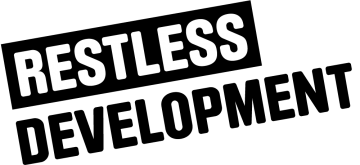
![FEMNET-logo-MEDIUM-v2[1] FEMNET-logo-MEDIUM-v2[1]](https://action4sd.org/wp-content/uploads/2020/04/FEMNET-logo-MEDIUM-v21-125x150.jpg)

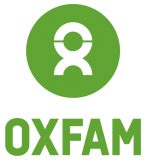

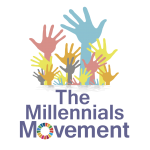

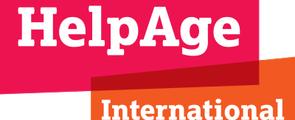

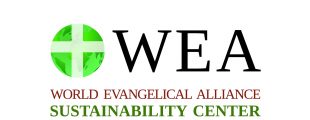
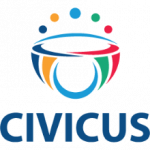

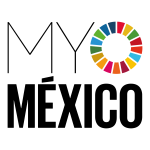
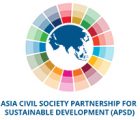





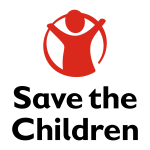


<img src="https://mirrors.creativecommons.org/presskit/buttons/80x15/png/by.png" height="15"> Action for Sustainable Development
<a href="/photo-credits">Photo Credits</a> <a href="/privacy-policy">Privacy Policy</a>

